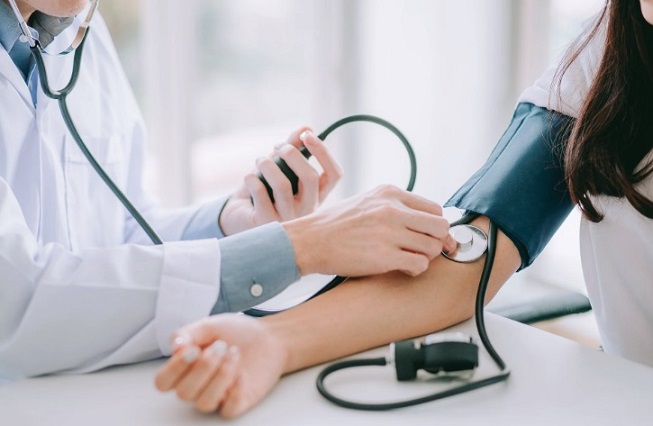Nikhil Prasad Fact checked by:Thailand Medical News Team Aug 07, 2025 6 months, 2 weeks, 4 days, 3 hours, 23 minutes ago
Medical News: Long COVID Now Also Associated with Blood Pressure Disorders
A new study from researchers at the Department of Radiology at Albert Einstein College of Medicine and Montefiore Medical Center in New York, alongside the Renaissance School of Medicine at Stony Brook University, has uncovered another serious long-term consequence of COVID-19 — the risk of developing new-onset hypertension even up to three years after infection.
 COVID-19 Infection Triggers Hypertension Years Later in Many
COVID-19 Infection Triggers Hypertension Years Later in Many
In what is the largest and most detailed study of its kind to date, researchers analyzed data from over 1.7 million patients in the Stony Brook Healthcare System. They found that 9.93% of COVID-19 patients who were hospitalized and 4.66% of non-hospitalized patients developed high blood pressure within three years following infection. For comparison, the rate among COVID-negative individuals was 6.94%.
This
Medical News report highlights that those who were hospitalized for COVID-19 were 57% more likely to develop hypertension than COVID-negative individuals, while even non-hospitalized cases saw a delayed but elevated risk emerging between 1.5 to 3 years after infection.
COVID-19 Identified Among Top Five Hypertension Triggers
After evaluating multiple risk factors, the study concluded that COVID-19 was among the top five most significant contributors to new-onset hypertension — ranking alongside obesity, age over 50, tobacco use, and insomnia. In fact, the odds of developing high blood pressure were 76% higher in individuals who had COVID-19 than those who had not.
The researchers explained that SARS-CoV-2 likely contributes to hypertension by damaging blood vessels, disturbing hormonal systems that regulate blood pressure (particularly the RAAS pathway), triggering chronic inflammation, and possibly causing lasting overactivation of the body’s stress response system. These mechanisms could explain the delayed emergence of hypertension in non-hospitalized patients.
Mental Health and Reinfections Also Play a Role
Interestingly, the study also found a strong link between mental health disorders and high blood pressure. Conditions such as anxiety, depression, insomnia, and substance use increased the risk of hypertension. The researchers suggest that the psychological impact of the pandemic — combined with the biological effects of the virus — may be fueling the rise in cases.
Furthermore, repeated COVID-19 infections appear to significantly increase the risk of developing cardiovascular complications, with data pointing to a higher likelihood of new hypertension after reinfection.
Young and Healthy Individuals Also at Risk
One of the most concerning findings is that even relatively young and healthy individuals without any prior medical conditions are showing signs of post-COVID hypertension. This means that routine blood pressure monitoring may b
e necessary even in populations previously considered low risk.
The study’s authors stress that post-COVID hypertension can easily be overlooked, especially when symptoms appear long after recovery. They call for routine long-term monitoring and thorough evaluations for all COVID-19 survivors — regardless of the severity of their initial illness.
The study findings were published in the peer reviewed journal: Scientific Reports
https://link.springer.com/article/10.1038/s41598-025-14617-5
For the latest COVID-19 News, keep on logging to Thailand
Medical News.
Read Also:
https://www.thailandmedical.news/news/breaking-thailand-medical-news-finds-that-sars-cov-2-infections-increases-risk-of-isolated-diastolic-hypertension-urgent-studies-warranted
https://www.thailandmedical.news/news/breaking-news-indian-one-year-follow-study-of-post-covid-individuals-alarmingly-finds-that-32-3-percent-develops-new-onset-hypertension
https://www.thailandmedical.news/news/breaking-covid-19-news-italian-study-shows-that-about-9-percent-of-all-exposed-to-sars-cov-2-will-develop-new-onset-hypertension
